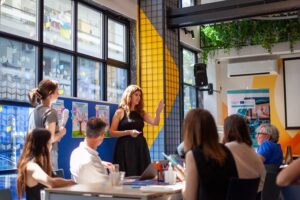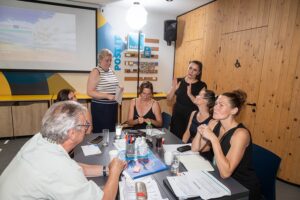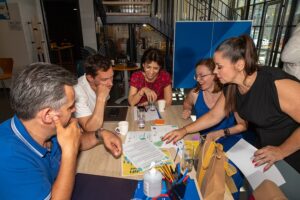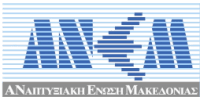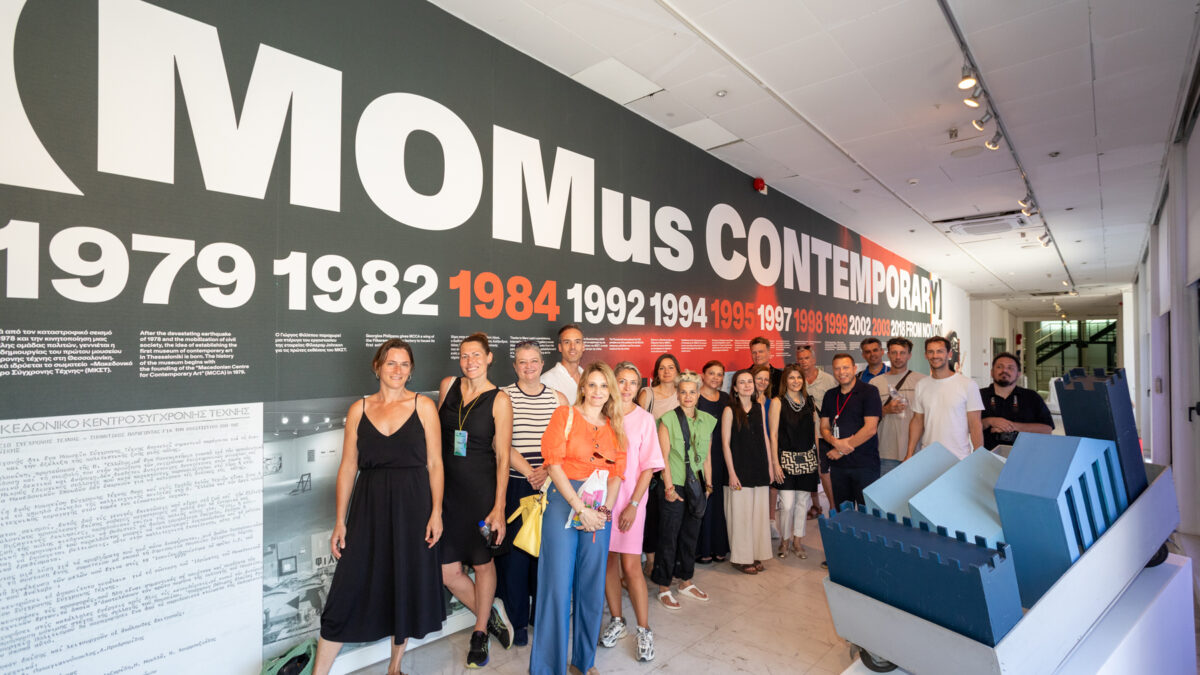
The third “Exchange of Experience” Meeting within the CCSI4CCSI project (Cultural and Creative Sectors and Industries for Collaboration, Competitiveness, Sustainability and Innovation) took place on July 1–3, 2025, in Thessaloniki, hosted by KEPA.
The well-organized three-day program included presentations by stakeholders from the local creative ecosystem, best practices from the participating regions of the CCSI4CCSI project, as well as a participatory workshop and study visits. This meeting focused on the exchange of best practices related to the development of support and networking structures for professionals in the Cultural and Creative Sectors and Industries (CCSI).
On the first day, the meeting was held at the Hellenic Design Centre, an initiative of KEPA. Participants were welcomed by Ms. Angeliki Barakli, Head of the European Projects Department at KEPA, and Ms. Anthoula Nikopoulou, Project Manager of CCSI4CCSI, representing the Region of Central Macedonia (RCM), giving a brief presentation of the project’s activities and current framework.
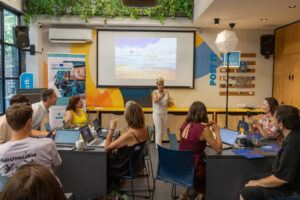
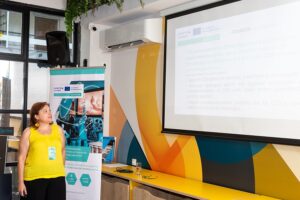
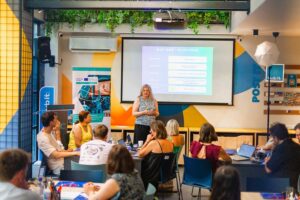
The Region of Central Macedonia – as the Lead Partner of the project – had a strong presence with welcoming remarks from Mr. Christos Mittas, Deputy Regional Governor for Culture and Sports, and Ms. Maria Goulaptsi, Head of the Directorate of Innovation and Entrepreneurship Support, highlighting in her speech the priority RCM places on the CCSI sector through new support tools for creative professionals. Then, Ms. Angeliki Milonaki, Head of the Regional Film Office in RCM, gave an in-depth presentation on the purpose and development of the Office, its milestones and achievements in attracting investors for film and television production in Central Macedonia. She also highlighted its initiatives to strengthen the local audiovisual ecosystem through training and collaboration with the tourism sector, underlining the Office’s vision to make Central Macedonia a model region for inclusive and sustainable growth.
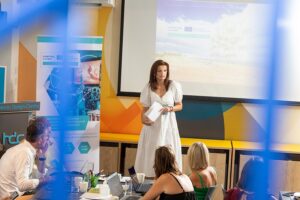
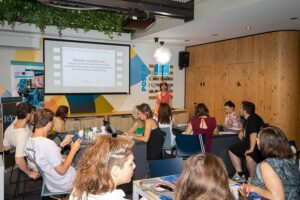
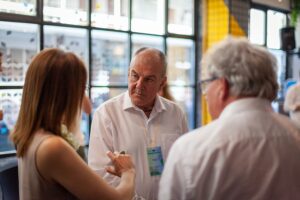
Next, representatives from each participating region shared interesting case studies, such as the dynamic networks like Culture for Change (Greece), which acts as an accelerator for cross-sectoral cooperation in culture and its social impact on local cultural life. Additionally, the vision for creating an alternative space hosting artists and professionals from the Cultural and Creative Sectors was shared by a representative of the Forum of Independent Cultural Associations FUNK (Croatia), aimed at hosting music and artistic performances and supporting artists in freely expressing their ideas and cultivating an independent culture.
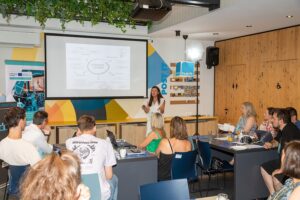
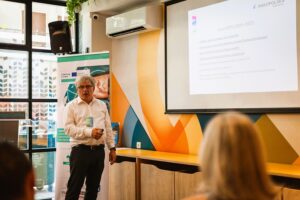
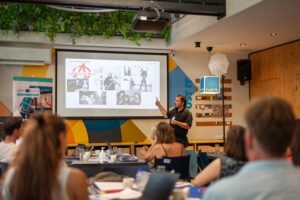
A presentation followed by the Marshal Office of the Małopolska Region (Poland) on the role of specialization platforms in developing innovation in the CCSI sector in Małopolska. Another case from Poland involved a collaboration between the Łukasiewicz Research Network and Krakow Glassworks, bringing the history and technology of glass art closer to the public through educational, exhibition, and cultural activities at the Krakow Glass Center.
From Denmark, the practice presented by the Social & Industrial Design Lab of the Kolding School of Design focused on the importance of collaborative initiatives with the Nordic Art and Design Network of Higher Education Institutions. These initiatives include innovative activities, artistic practices, and development techniques targeting co-design of social welfare solutions.
Finally, Hangar K, a Co-Creation Hub in Belgium, functions as an ecosystem for innovation, collaboration, and growth, hosting a diverse community of artists, digital creators, and startups. It provides not just space but personalized guidance, knowledge exchange, and access to a strong network of professionals and events, including the WONDER Creativity Festival and the Flanders Game Hub, helping new creators secure their place in the international gaming industry.
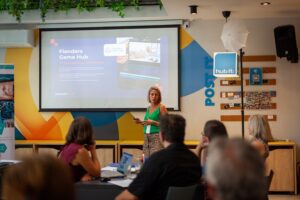
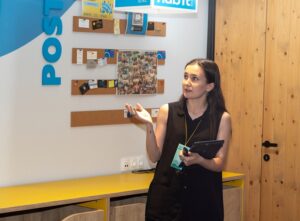
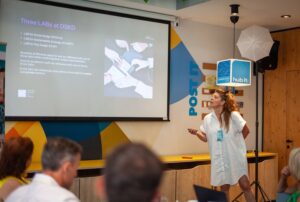
That afternoon, a cultural walk through the city gave participants the opportunity to be guided by experienced professionals and learn about Thessaloniki’s history through an experiential approach organized by dot2dot, a social cooperative enterprise active in culture, experiential tourism, research, and education.
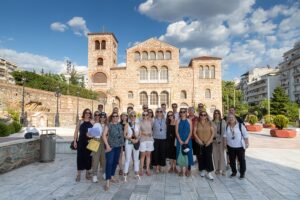
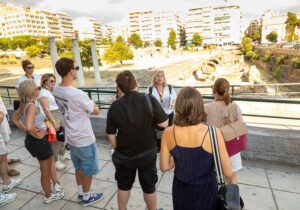
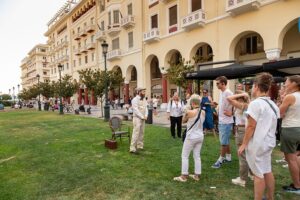
Day 2 began with study visits. The consortium members visited the Thessaloniki Cinema Museum to learn about the history of Greek cinema, from early amateur efforts in the 20th century to modern-day productions. Through an experiential journey, they explored a collection of cinema-related objects and created their own short film using role-play in the specially designed “green screen” studio.
Next, they visited the Beetroot Design Studio, located in the city’s most creative district. Beetroot’s new offices are housed in the renovated “han” of Ismail Pasha, transformed into a contemporary cultural and design hub. The team aims to highlight this space as a creative meeting point for exhibitions, cultural and educational activities, and future commercial collaborations.
The study visits concluded with a welcome at the MOMus – Metropolitan Organisation of Museums of Visual Arts of Thessaloniki, by its President, Dr. Epaminondas Christofilopoulos, at the Museum of Contemporary Art. The museum is a pioneering institution for contemporary art and visual culture in Greece, focusing on future well-being and social change.
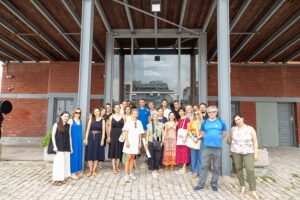
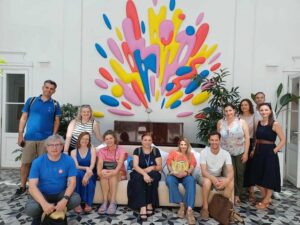
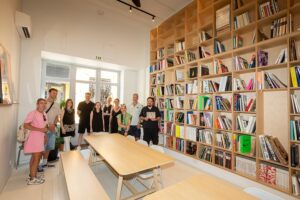
Later that day, consortium members returned to the Hellenic Design Centre for a co-design workshop focused on monitoring trends in the CCSI sector and shaping foresight scenarios for its future. The workshop was coordinated by Dr. Lina Margariti, Postdoctoral Researcher in Marketing and Professor at the Aristotle University of Thessaloniki (AUTH), and Ms. Maria Sarafi, founder of DigiGlow Media and collaborator of the RCM on research and statistical analysis. Project partners and stakeholders worked in teams to analyze trends and evaluate future scenarios using the appropriate tools.
Day 3 was dedicated to the project’s semi-annual steering committee meeting, during which a review of the third semester’s actions took place. Preparations and submission of the third progress report were discussed, and the next steps were planned.
